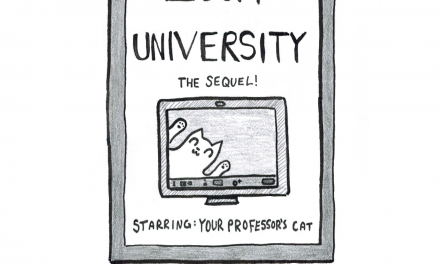What does it mean to be an undocumented student in Georgia? You cannot get a license, apply to state schools, receive in-state tuition or receive federal need-based aid. You may apply for the 2012 federal immigration policy Deferred Action for Childhood Arrivals (DACA), but the policy will prevent your deportation for just two years before you must seek a renewal.
Last week, the student advocacy group Freedom at Emory with the help of Georgia-based advocacy group Freedom University succeeded in lobbying Emory University to make private financial aid available for undocumented students.
We at the Wheel applaud Freedom University and Freedom at Emory for their vigilance on the status of undocumented students at Emory for the past few years. Their efforts have certainly paid off. This is the best step that Emory could take at this moment.
We applaud the University’s swift response, especially given the Georgia University System’s ban on undocumented students from attending the state’s top public schools and applying for in-state tuition.
Still, the details of the framework to grant private aid to undocumented students are not yet known. We hope this financial aid will come in the form of a grant rather than simply a loan.
The program must also be sustainable. The University must find a donor or a series of donors to establish a significant and broadly-defined endowment. If too many undocumented students are eligible in a single year, there is a risk that the fund will drain. Furthermore, the University has not yet announced a likely donor or foundation for this fund, yet has promised to establish it in time for undocumented first-year students who will enroll this fall.
While the University has not yet made clear the specifics of its decision, this recent decision shows us that Emory has become a thought-leader in the push to reform immigration policy at the state and federal levels, joining other southern institutions like Berea College in Kentucky and Tougaloo College in Mississippi, which openly accept undocumented students and offer them need-based aid.
Some ask why undocumented students have suddenly become eligible for aid when American students at Emory struggle to get need-based grants and scholarships. This question assumes that the University has somehow given undocumented students an advantage over students who are American citizens, which simply is not the case. They must still meet the same admission standards and must demonstrate genuine financial need.
Considering the fact that most undocumented students were brought here before turning 16 with no say over the matter, it is unfair not only to suggest that they are undeserving of need-based aid opportunities, but also to attack them as un-American. Students from across the globe travel to Atlanta for an Emory education — why would we exclude a group of students whose coming to the United States was completely outside of their control?
It is important to keep in mind that those who immigrated to this country as children are de facto citizens. Those who qualify for DACA have lived a significant portion, if not most, of their lives here. They and their parents contribute payroll and sales taxes but do not receive Social Security payments.
While the Georgia University System’s policies may satisfy local voters and taxpayers, Emory is not a state school; it is a private institution. Its commitment is not to the locals of Georgia — its commitment is to the global community as a whole.
The Emory Wheel was founded in 1919 and is currently the only independent, student-run newspaper of Emory University. The Wheel publishes weekly on Wednesdays during the academic year, except during University holidays and scheduled publication intermissions.
The Wheel is financially and editorially independent from the University. All of its content is generated by the Wheel’s more than 100 student staff members and contributing writers, and its printing costs are covered by profits from self-generated advertising sales.







